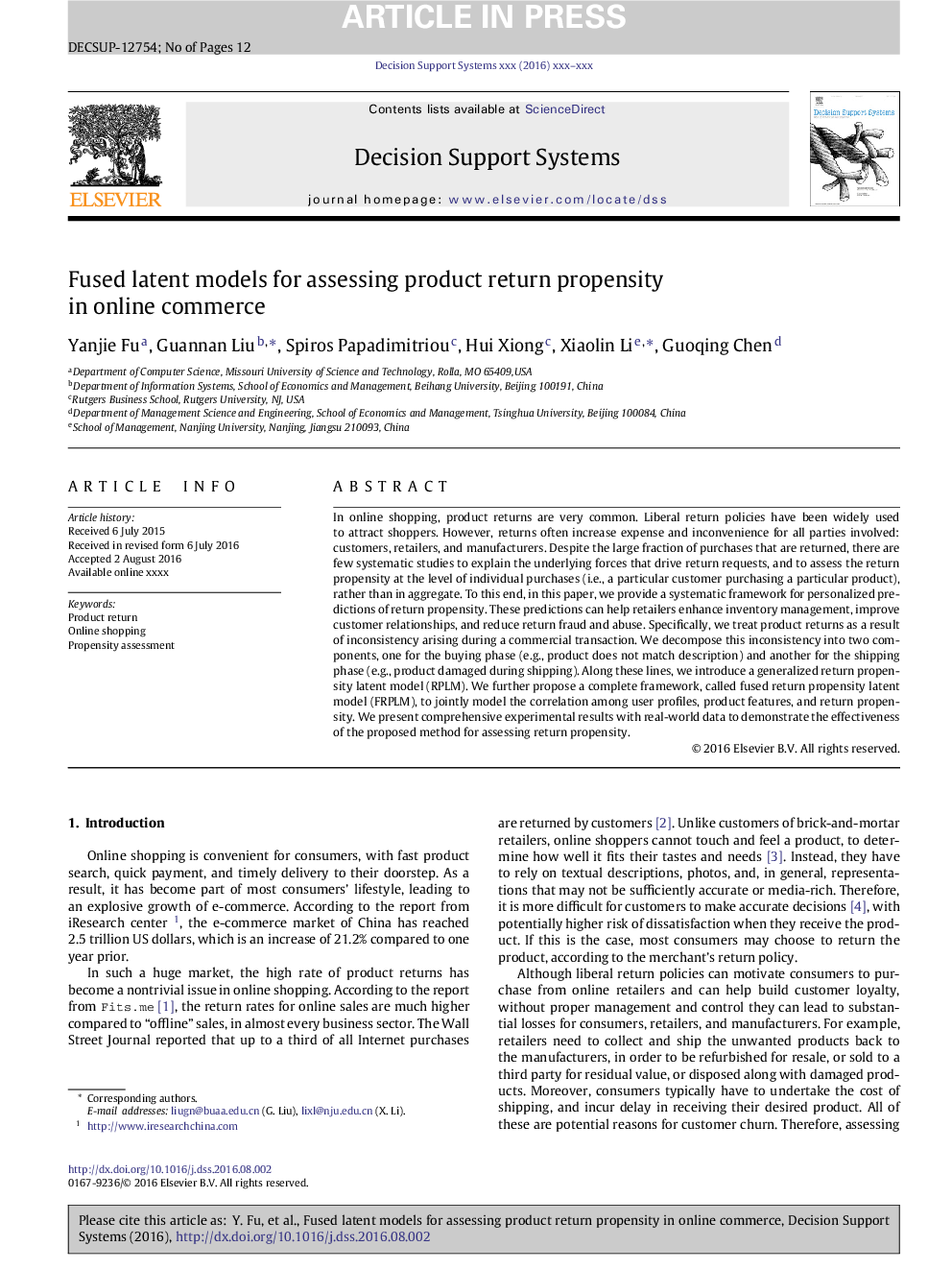| Article ID | Journal | Published Year | Pages | File Type |
|---|---|---|---|---|
| 4972416 | Decision Support Systems | 2016 | 12 Pages |
Abstract
In online shopping, product returns are very common. Liberal return policies have been widely used to attract shoppers. However, returns often increase expense and inconvenience for all parties involved: customers, retailers, and manufacturers. Despite the large fraction of purchases that are returned, there are few systematic studies to explain the underlying forces that drive return requests, and to assess the return propensity at the level of individual purchases (i.e., a particular customer purchasing a particular product), rather than in aggregate. To this end, in this paper, we provide a systematic framework for personalized predictions of return propensity. These predictions can help retailers enhance inventory management, improve customer relationships, and reduce return fraud and abuse. Specifically, we treat product returns as a result of inconsistency arising during a commercial transaction. We decompose this inconsistency into two components, one for the buying phase (e.g., product does not match description) and another for the shipping phase (e.g., product damaged during shipping). Along these lines, we introduce a generalized return propensity latent model (RPLM). We further propose a complete framework, called fused return propensity latent model (FRPLM), to jointly model the correlation among user profiles, product features, and return propensity. We present comprehensive experimental results with real-world data to demonstrate the effectiveness of the proposed method for assessing return propensity.
Keywords
Related Topics
Physical Sciences and Engineering
Computer Science
Information Systems
Authors
Yanjie Fu, Guannan Liu, Spiros Papadimitriou, Hui Xiong, Xiaolin Li, Guoqing Chen,
